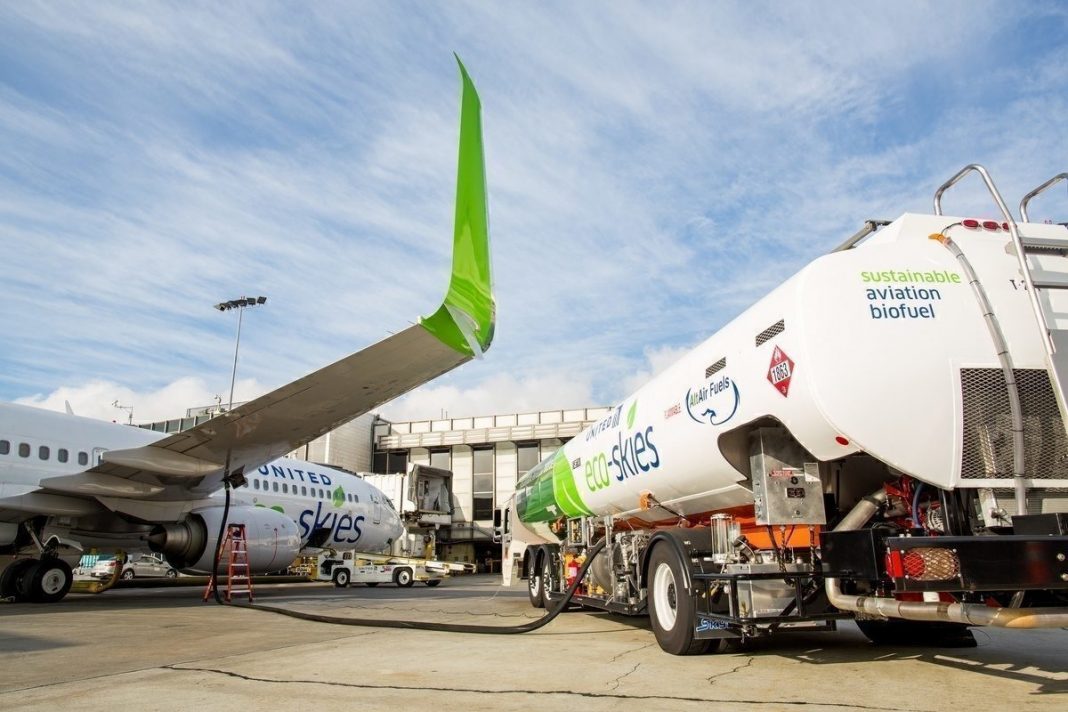Yesterday, Finnish energy company Neste announced that it would be supplying sustainable aviation fuel to three major U.S. airlines. With renewable jet fuel’s ability to significantly reduce greenhouse gas emissions, many are seeing this as one big step in achieving emissions output targets and moving towards more sustainable operations. So which airlines in the United States are using sustainable aviation fuel (SAF)?

United Airlines
According to the carrier, “United is years ahead of all US airlines in using and investing in sustainable aviation fuel.” In fact, the airline says that the supply agreements it has for this type of fuel represent more than half of the commercial aviation industry’s total agreements.
United’s original purchase agreement for SAF was in 2013. Then, in 2016, it became the first airline in the world to use SAF on a continuous basis.

Alaska Airlines, American Airlines, and JetBlue
Even though Alaska Airlines operated 75 flights on a cooking oil blend in 2011, yesterday’s announcement marked a firm commitment to regularly using SAF on its flights:
“This is a huge milestone for Alaska Airlines. We’ve moved from single, one-off demonstration flights and proving SAF was safe and demand existed, to operationalizing this fuel as a standard part of our business at one of our hubs. There’s no more waiting, we’re here.” -Marianne Csaky, Director of environmental affairs, Alaska Airlines
American Airlines and JetBlue have also signed an agreement with Neste to have the Finnish supplier provide SAF for flights out of San Francisco International Airport (SFO).

“Air travel connects people and cultures and supports a global economy. As an industry, we’re working together to limit our contributions to climate change,”-Joanna Geraghty, president and chief operating officer, JetBlue Airways
Southwest Airlines
While the all-737 carrier wasn’t included in this most recent Neste supply agreement, it had signed a deal with Red Rocks Biofuels LLC (RRB) to purchase low carbon renewable jet fuel in 2014. The airline’s agreement with RRB was for the purchase of approximately three million gallons per year, with the first delivery taking place in 2016.

Delta Air Lines
At the end of 2019, Delta Air Lines entered into an agreement with company Gevo to purchase 10 million gallons per year of advanced renewable biofuels.
Powered by inedible, industrial corn products (also known as “no. 2 corn”), Gevo separates the sugar from the proteins in the corn product, which is then used to make the jet fuel, while the proteins are fed to livestock.

The other guys
It appears that other airlines such as Hawaiian, Frontier, and Spirit, have not signed solid agreements with any suppliers for SAF as of yet. So far, we can see that Frontier flew a one-off flight in August 2019 to celebrate Green Week, while Spirit Airlines’ only involvement has been with the Port of Seattle to bring SAF to SeaTac airport.
While there are talks of bringing sustainable aviation fuel to Hawaii, nothing has really materialized on that side of the country yet.
So far, it looks like the most significant players are taking firm steps to integrate SAF into their daily operations. Hopefully, this is just the beginning.
[ad_2]
Source link


